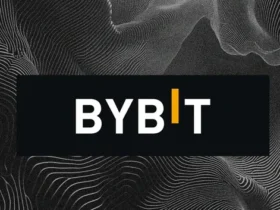Official status makes an exchange attractive to users and partners, ensuring liquidity and capital investments. RBC Crypto explains which exchanges have licenses related to cryptocurrency transactions.
Crypto exchanges need licenses and regulation depending on the jurisdiction in which they operate. Exchanges that do not obtain the required licenses may face the risks of activity suspension, fines, and loss of customer trust. Regulatory authorities aim to create a stable and secure environment for users and market participants, which requires exchanges to meet certain obligations.
Each country has its own laws and regulations governing the activities of financial organizations and cryptocurrency exchange platforms. Without the proper license, an exchange can be deemed illegal and lose the right to operate, leading to platform closure and sanctions. Users tend to trust regulated platforms, as having a license indicates compliance with data protection, fund security, and operational transparency requirements.
Regulators require licensed exchanges to implement mechanisms for protecting customer funds, such as asset reserves, insurance, and secure technologies for cryptocurrency storage. Licenses also oblige exchanges to have procedures for dispute resolution and preventing user losses. One of the most important conditions is adherence to anti-money laundering (AML) and counter-terrorism financing (CFT) standards. In the context of the global fight against financial crimes, licensed exchanges are required to verify their users through Know Your Customer (KYC) procedures and report suspicious transactions to the relevant authorities. This helps prevent the use of cryptocurrencies in illegal operations.
To operate in multiple markets simultaneously, exchanges need licenses in each jurisdiction. This allows them to offer services to citizens of different countries in accordance with local laws. For example, without a Money Service Business (MSB) license in the United States, an exchange cannot work with U.S. clients. For large financial organizations and investors, it is important to work with platforms that are under the supervision of regulators. Having a license makes an exchange attractive to such partners, ensuring an additional influx of liquidity and capital investments.
Licensed exchanges must undergo periodic checks of financial operations and security procedures. This increases their resilience to financial crises, prevents bankruptcies, and ensures long-term stability. Ultimately, licenses help cryptocurrency exchanges legalize their operations, increase customer trust, and comply with international financial security standards. Without licenses, they risk being blocked in key markets and facing serious legal and reputational issues.
Types of Licenses for Crypto Exchanges
Licenses for Digital Asset Operations: Some countries (e.g., Malta, Lithuania, Estonia) require licenses for cryptocurrency operations, including storage, exchange, and trading.
Financial Services License: In countries with developed financial regulation, exchanges must comply with requirements similar to traditional financial institutions. For example, the Australian Financial Services License (AFSL).
Registration as a Payment Operator: In some jurisdictions (e.g., the United States), exchanges must obtain a Money Service Business (MSB) license from FinCEN and comply with AML and CFT rules.
License for Securities Activities: If an exchange allows trading of tokens classified as securities (security tokens), it may need a license from a financial regulator such as the SEC in the U.S. or ESMA in the EU.
Registration with Tax Authorities: In some countries, crypto exchanges must report user and transaction information to tax authorities.
European MiCA Regulation (Markets in Crypto-Assets): The EU is preparing to implement the MiCA law, which will establish uniform rules for crypto exchanges, including mandatory registration and adherence to investor protection and market stability standards.
Local Requirements: In countries like Japan and South Korea, there are strict national laws requiring registration with financial agencies and regular audits. Exchanges that fail to obtain the required licenses may face risks of suspension, fines, and loss of customer trust.
License for Virtual Asset Service Providers (VASP): This license is issued by the Dubai Virtual Asset Regulatory Authority (VARA).
Which Exchanges Hold Which Licenses
Binance, one of the largest cryptocurrency exchanges in the world, holds a number of licenses and registrations in various jurisdictions, allowing it to provide services in accordance with local laws and regulations. According to the information presented on the company’s official website, Binance has the following licenses and registrations: France, Italy, Spain, Sweden, Dubai, Abu Dhabi, Kazakhstan, Indonesia, Brazil.
However, it should be noted that in some countries, Binance has faced regulatory difficulties. For example, in June 2023, the Belgian Financial Services and Markets Authority ordered Binance to cease operations in the country. In May 2023, Binance announced its exit from the Canadian market due to tightening local regulations. Furthermore, in June 2023, the U.S. Securities and Exchange Commission (SEC) filed a lawsuit against Binance and its founder, Changpeng Zhao, accusing them of violating securities laws.
OKX, one of the leading global cryptocurrency exchanges, holds several licenses that allow it to provide services in different jurisdictions. In January 2025, OKX became the first global exchange to receive full licensing under the EU’s Markets in Crypto-Assets (MiCA) Regulation. This license was issued by the Malta Financial Services Authority (MFSA) and allows OKX to offer regulated cryptocurrency products and services to more than 400 million people across Europe through its center in the European Economic Area (EEA), located in Malta.
Thanks to the MiCA license, OKX plans to expand its services to all 30 EEA countries using the “passporting” mechanism, which allows companies registered and licensed in one EU country to offer their services in other EU countries under a single regulatory framework.
In Australia, OKX provides services through two subsidiaries. OKX Australia Pty Ltd is registered with the Australian Transaction Reports and Analysis Centre (AUSTRAC) and offers over-the-counter (OTC) spot trading services to all Australian users. OKX Australia has an Australian Financial Services License (AFSL), issued by the Australian Securities and Investments Commission (ASIC). This license allows the company to provide cryptocurrency derivative trading services to a specific category of large clients.
In addition, OKX holds MTL licenses for operation in 32 U.S. states, a license from the Dubai Virtual Asset Regulatory Authority (VARA), and a Major Payment Institution (MPI) license in Singapore.
Bybit is actively expanding its presence in international markets by obtaining licenses in various jurisdictions. Currently, Bybit holds licenses in the following countries: Kazakhstan, Georgia, United Arab Emirates (Dubai), Cyprus.
Coinbase holds Money Transmitter Licenses (MTLs) in most U.S. states, including New York, where it holds a BitLicense issued by the New York Department of Financial Services (NYDFS). Coinbase also holds an electronic money services license issued by the Central Bank of Ireland, which allows it to operate in EEA countries.
Kraken is registered in the U.S. as a Money Services Business (MSB) with the Financial Crimes Enforcement Network (FinCEN) of the U.S. Department of the Treasury. In Canada, the exchange is registered as an MSB with the Financial Transactions and Reports Analysis Centre of Canada (FINTRAC), and in the European Union, Kraken operates through the U.K.-registered Payward Ltd., which complies with the EU’s Fifth Anti-Money Laundering Directive (5AMLD).


























Leave a Reply